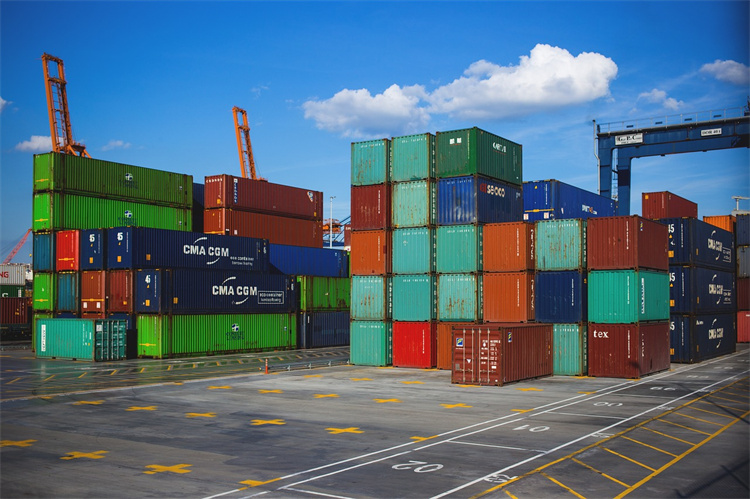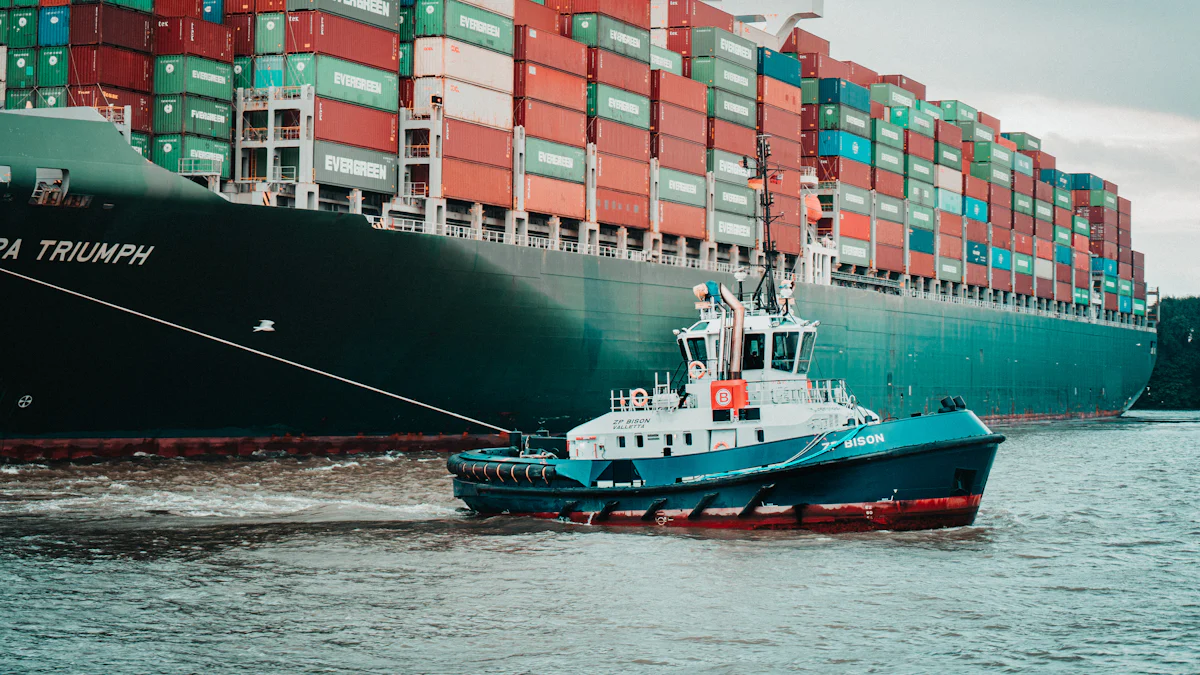Why Your Business Needs a Sustainable Supply Chain Now

Embracing sustainable supply chain practices is no longer just an option; it's a necessity in today's business landscape. Companies worldwide are recognizing the urgency of adopting sustainable practices to align with evolving market demands and regulatory requirements. This blog will delve into the critical importance of integrating sustainability into supply chain operations, highlighting the myriad benefits that come with this strategic shift.
The Importance of a Sustainable Supply Chain

Sustainable supply chains play a pivotal role in reducing environmental impact and fostering social responsibility while also yielding significant economic benefits. Embracing sustainability within the supply chain is imperative for businesses looking to thrive in today's dynamic market landscape.
Environmental Impact
Reducing Carbon Footprint
Implementing measures to reduce carbon emissions throughout the supply chain is crucial. By optimizing transportation routes and embracing eco-friendly practices, companies can significantly decrease their carbon footprint. This not only benefits the environment but also enhances brand reputation.
Minimizing Waste
Efficient waste management strategies are essential for sustainable supply chains. Companies can minimize waste by implementing recycling initiatives, reducing packaging materials, and adopting circular economy principles. These actions not only contribute to environmental preservation but also drive operational efficiency.
Social Responsibility
Ethical Labor Practices
Prioritizing ethical labor practices ensures fair treatment of workers across the supply chain. By engaging with suppliers that uphold labor standards and promote worker well-being, businesses can create a positive social impact and build trust among stakeholders.
Community Engagement
Engaging with local communities is a cornerstone of sustainable supply chains. Companies that actively support community development initiatives, empower local businesses, and foster inclusive growth contribute to building resilient societies and nurturing long-term relationships.
Economic Benefits
Long-term Cost Savings
While initial investments may be required to transition to sustainable practices, the long-term cost savings are substantial. By optimizing processes, reducing resource consumption, and enhancing efficiency, businesses can achieve financial stability while driving sustainability goals forward.
Competitive Advantage
A sustainable supply chain provides a competitive edge in today's market. Consumers increasingly prefer environmentally conscious brands, making sustainability a key differentiator. By aligning with consumer values and demonstrating commitment to sustainability, businesses can secure market relevance and attract a loyal customer base.
Experts recommend steps to make supply chains sustainable. The experts agreed on the need to shift the perspective from the compliance aspect of due diligence legislation to a holistic one that emphasizes the positive impact of making supply chains sustainable. By reframing the narrative, there is an opportunity to proactively improve sustainability rather than simply meeting regulatory requirements.
Key Elements of a Sustainable Supply Chain
In the realm of sustainable supply chains, sustainable sourcing stands as a foundational pillar. This entails meticulous raw material selection to ensure that resources are ethically and environmentally sound. Companies must prioritize suppliers who align with their sustainability goals, fostering supplier collaboration for mutual benefit.
Efficient transportation is another critical aspect of a sustainable supply chain. By reducing emissions through the adoption of eco-friendly practices and technologies, businesses can minimize their environmental footprint. Moreover, optimizing routes not only enhances operational efficiency but also contributes to reducing greenhouse gas emissions significantly.
Waste management plays a pivotal role in driving sustainability initiatives forward. Implementing recycling initiatives within the supply chain can lead to substantial reductions in waste generation. Additionally, embracing waste reduction strategies such as reusing materials and minimizing excess packaging can further enhance the environmental performance of the supply chain.
When examining successful case studies of supply chain sustainability, companies have demonstrated remarkable progress by integrating these key elements into their operations. For instance, TotalEnergies collaborates with its suppliers worldwide to promote sustainable procurement practices, emphasizing the importance of responsible sourcing and supplier engagement.
Mini case studies highlight how organizations have successfully managed to reduce costs while maintaining sustainable supply chains. These examples serve as inspiration for businesses looking to achieve long-term cost management within their operations. By aligning cost reduction efforts with sustainability goals, companies can create value while upholding ethical and environmental standards.
The importance of sustainable supply chains cannot be overstated in today's business landscape. By focusing on responsible sourcing practices and embracing sustainability across all facets of the supply chain, organizations can enhance their competitiveness and contribute to building a more sustainable future for generations to come.
Steps to Implement a Sustainable Supply Chain

When implementing a sustainable supply chain, companies must follow a strategic roadmap that encompasses various crucial steps. By methodically mapping out the supply chain, engaging stakeholders effectively, and establishing robust monitoring mechanisms, organizations can pave the way for sustainable success.
Mapping the Supply Chain
To kickstart the journey towards sustainability, businesses need to identify key areas within their supply chain that have the most significant environmental and social impact. This involves conducting thorough assessments of each stage of the supply chain to pinpoint areas where improvements can be made. Once these areas are identified, companies can then proceed to set goals that align with their overarching sustainability objectives.
Engaging Stakeholders
Collaboration with stakeholders is paramount in driving sustainable initiatives forward. By forming supplier partnerships, organizations can work closely with their suppliers to ensure that sustainability practices are upheld throughout the entire supply chain. This collaboration fosters transparency, accountability, and shared commitment towards sustainable goals. Moreover, employee training plays a vital role in instilling a culture of sustainability within the organization. By educating employees on best practices, environmental impact mitigation strategies, and ethical considerations, businesses can empower their workforce to actively contribute to sustainable supply chain efforts.
Monitoring and Reporting
Continuous monitoring and reporting are essential components of a successful sustainable supply chain strategy. Companies need to establish robust systems for tracking progress towards sustainability goals. This involves regular assessments, data collection on key performance indicators, and analysis of results to gauge the effectiveness of implemented initiatives. Furthermore, embracing a culture of continuous improvement is critical for long-term sustainability success. Organizations should leverage insights from monitoring activities to identify areas for enhancement, implement corrective measures where necessary, and continuously strive for higher levels of sustainability performance.
In a global survey conducted among senior supply chain executives by Deloitte's Supply Chain Panel, an overwhelming 94% of respondents recognized supply chain sustainability as a competitive advantage. This underscores the growing importance of integrating sustainable practices into supply chain operations as a means to drive business success while contributing positively to society and the environment.
By following these structured steps and leveraging stakeholder engagement alongside robust monitoring practices, businesses can embark on their journey towards building a resilient and environmentally conscious supply chain that not only meets market demands but also sets them apart as leaders in sustainable business practices.
To summarize, sustainable supply chains are crucial for businesses aiming to thrive in today's market.
Immediate action is imperative to align with evolving demands and regulations.
Businesses are encouraged to initiate their sustainability journey promptly.
See Also
Discover Your Supply Chain Efficiency Today!
Preparedness: JUSDA's Risk Mitigation in Supply Chain Resilience
Transforming Transportation: Supply Chain Innovation's Influence
